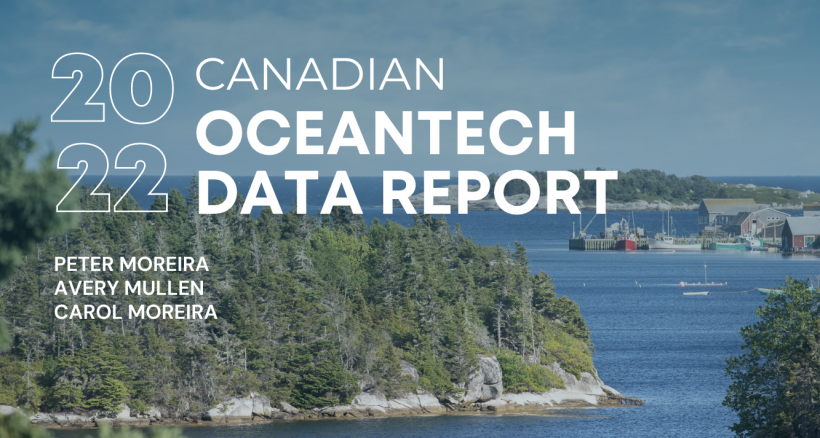If there was a singular achievement of Canada’s oceantech startup community in 2022, it was that it truly became a national community.
Today, we are releasing our 2022 Canadian Oceantech Data Report, our second analysis of the country’s bluetech startups. We were struck by two things while producing this work. First, the developments in the ecosystem have been astonishing in one year, creating a true national network. Canada now boasts a network of startup accelerators that are collaborating and supporting one another as well as the companies they foster.
Second, the quality of startups within the community has improved dramatically in a single year. Not only are there more Canadian oceantech startups but they are better capitalized, better staffed, and we believe more are selling products to clients.
The greatest changes have been seen outside Atlantic Canada, which Startup Genome ranked as the No. 10 global oceantech startup ecosystem last year. British Columbia generated more new companies than any other province with 13, closely followed by Nova Scotia with 11. Quebec and Newfoundland and Labrador reported seven new companies each, with Quebec being the fastest-growing bluetech startup community in the country. B.C. and Quebec made important advances in their ecosystems, with Victoria-based COAST and Rimouski-based Novarium both establishing their executives and launching accelerators.
Click here to download the report
Several bluetech companies generated headlines. Halifax’s Planetary Technologies was one of 15 companies to receive a US$1 million Milestone Award from the Carbon Removal XPRIZE, and Kraken Robotics of St. John’s was named the top-performing company on the TSX Venture exchange. Sherbrooke, Que,-based Oneka Technologies has made a string of announcements in the last 18 months, including the news that it will head a $14 million Ocean Supercluster project.
We identified 186 Canadian-owned startups in our 2022 databank, a slight increase from 2021. Some 37 startups that we included in our 2021 tally have been removed as they never got off the ground, and we found 50 companies that launched in 2022. We want to stress that the new companies we found recently appear much stronger than those we identified in the previous report.
Overall, we’ve found impressive growth in the oceantech sector, seen in the metrics of the startups:
- We estimate employment at Canadian bluetech startups increased about 48 percent so more than 1,000 people now work in these enterprises. This growth has been driven by new companies hiring for the first time, and by companies with large funding rounds using their money to staff up.
- The companies reporting revenue data to us produced 139 percent growth in sales. About half of the companies that only reported revenue growth told us their revenues have doubled or better. We don’t have hard data on a broad range of startups, but the indications are that revenues are growing.
- We found $69.1 million in equity funding for oceantech startups – 68 percent more than in our previous report. Halifax-based Mara Renewables accounted for more than half of this total with its $39.5 million funding round, but we still noted several companies with million-dollar-plus rounds.
- About 18 percent of the startups are led by women and 24 percent by immigrants.
We hope this report is a further step in establishing a pool of data that will help community members better understand this burgeoning sector. We’d like to thank all those who contributed to it.










